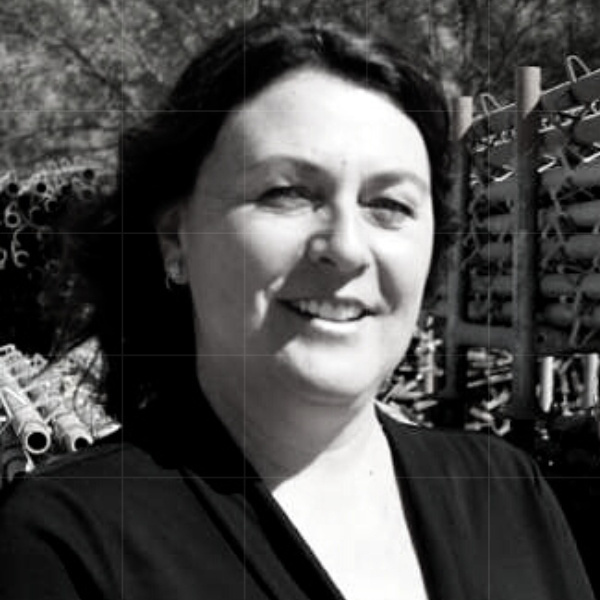
/cashflow%20forecasts%20and%20budgets%203.jpg?width=400&height=800&name=cashflow%20forecasts%20and%20budgets%203.jpg)
Cashflow is the lifeblood of your business. Take control by moving beyond gut instinct and leveraging forecasting and budgeting to make confident, data-driven decisions. Use tools like a cash flow forecast template and proven cash flow management strategies to ensure your business stays on track for success.
The average business owner faces countless decisions every day. What to do next? Where to focus? How to ensure you're making the right choices? These constant decisions can feel overwhelming, leaving you unsure of your next steps.
That’s where we come in. At Trekk Advisory, we specialise in helping business owners make informed decisions. Whether it’s managing cash flow, improving cash inflow, or budgeting and forecasting, we’re here to support you every step of the way. With tools like a cash flow template and actionable strategies, we help you focus on what matters most.
You started your business with passion and a vision to offer something valuable. But managing finances and crunching numbers can quickly take over, leaving you feeling like your business isn’t reaching its potential.
Business forecasting changes that. By using historical data and trends, forecasting gives you control over your financial future. It eliminates guesswork and prepares you for challenges. Whether you’re creating a cash flow projection template, forecasting cash flow, or planning budgets, the right approach ensures you stay ahead.
Benefits of business forecasting:
/cashflow%20forecasts%20and%20budgets%203.jpg?width=400&height=800&name=cashflow%20forecasts%20and%20budgets%203.jpg)
Your business generates valuable data every day. By unlocking its potential, you can create accurate forecasts tailored to your needs. Tools like cash flow projections, a cash flow projection format, and a free cash flow template simplify this process. At Trekk Advisory, we help you harness this data to stay prepared for whatever comes your way.
/Tax%20minimisation%20and%20Planning%203.jpg?width=400&height=800&name=Tax%20minimisation%20and%20Planning%203.jpg)
Much like checking the weather forecast to plan your day, business forecasting prepares you for the future. Anticipate seasonal ups and downs, major disruptions like COVID-19, and other challenges with confidence.
Accurate forecasting empowers you to:
With tools like a cash flow forecast, cash flow forecasting templates, and cash flow management strategies, you’ll have everything you need to navigate uncertainty and thrive.
Understanding your cash position is key to managing your business effectively. To dive deeper into how cashflow statements provide clarity on your cash balances and track cash inflows and outflows, check out our comprehensive guide: Understanding the Cash Flow Statement. It’s a must-read for building financial confidence and stability.
Cash flow is one of the most critical aspects of running a business. For small business owners, cash flow challenges can feel overwhelming, but a solid cash flow forecast can make all the difference.
A cash flow forecast uses historical data—including sales, expenses, payments, and liabilities—to project how money will move in and out of your business over the next 1, 3, 6, or 12+ months. Starting with your opening bank balance, a cash flow forecast template provides a roadmap for financial planning.
While forecasts aren’t 100% accurate, they’re far better than guesswork. When unforeseen events arise, forecasting cash allows you to see the potential impact and make adjustments proactively.
Take control of your finances with The Cash Flow Playbook, your ultimate guide to mastering cash flow management. Whether you're wondering what is a cash flow spreadsheet, trying to create a detailed cash flow forecast, or exploring ways to increase cash flow, this playbook has you covered.
Inside, you’ll discover:
No matter where your business is in its journey, this playbook is designed to simplify cash flow management and provide clarity for the road ahead. Stop guessing and start planning with confidence.
Get your free copy of The Cash Flow Playbook today and start building a financial strategy that works for your business. Don’t let cash flow challenges hold you back—take charge of your future now.
/Selling%20the%20business%203.jpg?width=400&height=800&name=Selling%20the%20business%203.jpg)
With 56% of small business owners facing cash flow pressures (Xero, 2022), having a clear cash flow strategy can save sleepless nights and position your business for success.
Tools like a cash flow projection template, a cash flow template, and a cash forecast example empower you to manage cash flow effectively, giving you confidence to make informed decisions.
/trekk-accounting-eryan-haddon.png?width=623&height=724&name=trekk-accounting-eryan-haddon.png)
New businesses often struggle with forecasting due to a lack of historical data. However, forecasting is even more critical for startups to avoid early financial pitfalls.
At Trekk Advisory, we assist startups by:
Whether you’re a startup or an established business, tools like a cash flow forecast, a cashflow projection, and strategies for how to improve cash flow can set you on the path to financial stability.
At Trekk Advisory, we understand that managing cash flow is critical to your business’s success. Our tailored services are designed to meet your unique needs, from small business cash flow solutions to advanced cash flow forecasting.
Take control of your finances with tools like a cash flow management strategy and a cashflow forecast template. Contact Trekk Advisory today to build a stronger financial future.

Interested in reaching out? Fantastic! We're here to support you with our approachable mix of professional savvy and genuine care for your business. Kick things off with us over a coffee and some down-to-earth number talk.
Have Questions ? We’re here to help
A cash flow forecast is a financial tool that helps businesses predict the future inflow and outflow of cash. It uses historical data, industry insights, and business goals to create accurate predictions for cash flow over a period of time, typically 1-12 months. This allows businesses to plan for the future and make informed decisions about their finances. Cash flow forecasting can also help identify potential issues or opportunities in a business's finances, allowing them to take proactive measures to improve their financial health. So, it plays a crucial role in ensuring the success of a business by providing peace of mind and helping with effective decision-making. Overall, incorporating cash flow forecasting into your budgeting process can greatly benefit your business's financial stability and growth.
Cash flow projections can be calculated by following these steps:
Start with your opening cash balance: This is the amount of cash your business has at the beginning of the projected period.
Add cash inflows: These include sales revenue, loans, investments, and any other source of incoming cash.
Subtract cash outflows: These include expenses such as rent, utility bills, salaries, inventory costs, etc.
Calculate net cash flow: Simply subtract the total cash outflows from the total cash inflows to get your net cash flow for each month.
Adjust for non-cash items: Include any non-cash transactions that affect your finances, such as depreciation or amortization expenses.
Incorporate qualitative forecasting methods, such as expert opinions and market insights, to enhance the accuracy of your projections.
Update for changes in market conditions: Regularly reassess and adjust your cash flow projections based on any changes in the market, such as new competition or economic shifts.
Identify potential risks: Consider any potential risks that could impact your cash flow, such as unexpected expenses or fluctuations in demand for your products or services.
Create multiple scenarios: To prepare for different outcomes, create several cash flow projections with varying levels of success. This will help you plan for different scenarios and make informed decisions.
Track actual results: Once you have created your initial projections, regularly track your actual cash flow against them. This will allow you to identify any discrepancies and make necessary adjustments to improve accuracy in future projections.
There are three main methods of cash flow forecasting, including various forecasting methods:
Direct method: This method uses data from past and present transactions to predict future cash flows. It is a relatively simple approach but may not be as accurate.
Indirect method: This method uses the business’s income statement and balance sheet to forecast cash flow by adjusting net income for non-cash items and changes in current assets and liabilities.
Percentage of sales method: This method predicts cash flow based on a percentage of projected sales revenue. While it is easy to use, it may not take into account other factors that can affect cash flow.
Each forecasting technique has its own strengths and limitations, so it's important to choose the right one for your business.
Each business may have different needs and preferences, so it’s essential to choose the most suitable method for your specific situation.
An accurate cash flow forecast is one that closely predicts the actual inflow and outflow of cash in a business. This means taking into account not only historical data and future projections but also external factors such as industry trends, economic conditions, and potential risks. It should also be regularly reviewed and updated to reflect any changes in the business's financial situation. An accurate cash flow forecast allows businesses to make informed decisions and anticipate potential issues, leading to better financial management and stability. So, it is crucial for businesses to continuously strive for accuracy in their cash flow forecasting process.
A business budget is a financial plan that outlines a business's expected income and expenses for a specific period, typically 1-12 months. It serves as a roadmap for managing finances and helps businesses make informed decisions about spending, investments, and growth opportunities. A budget includes all sources of income, such as sales revenue and loans, and all expenses, including rent, salaries, marketing costs, etc. It can also incorporate goals and objectives to guide the business's financial direction. Overall, a well-planned budget is essential for achieving financial stability and success in any business.
To create a budget for your business, follow these steps:
Identify your business's goals and objectives: This will help guide your budgeting process and prioritize spending.
Gather financial data: Collect information on past income and expenses, industry trends, and any other relevant financial information.
Estimate future income: Use historical data and market insights to predict your expected revenue for the budget period.
Project expenses: Consider all costs associated with running your business, such as rent, salaries, inventory, etc.
Determine net cash flow: Subtract total expenses from total income to calculate your projected net cash flow.
Make adjustments: Review the budget for accuracy and make any necessary changes based on new information or unexpected events.
The seven types of budgets are:
Operating budget: This includes all costs associated with running a business, such as rent, salaries, and marketing expenses.
Capital budget: This focuses on long-term investments in assets like equipment or property.
Cash flow budget: This forecasts the expected inflow and outflow of cash over a specific period.
Sales budget: This predicts future sales revenue based on market trends and past performance.
Production budget: This outlines the number of products to be produced during a given period based on sales projections and inventory levels.
Marketing budget: This covers expenses related to promoting and advertising products or services.
Master budget: This integrates all other budgets to provide an overall financial plan
Forecasting is the process of predicting future events or trends based on past data and statistical analysis. In a business context, forecasting can involve predicting sales revenue, expenses, and cash flow over a specific period to assist with financial planning and decision-making. It is an essential aspect of budgeting and allows businesses to anticipate potential challenges and opportunities. Forecasting also helps identify patterns and analyze market trends that may affect the business's performance in the future. Overall, forecasting plays a crucial role in helping businesses prepare for what lies ahead and make informed decisions to achieve their goals. So, it is an important tool for maintaining financial stability and growth in any business.
The three types of forecasting are:
Qualitative forecasting: This method uses expert opinions and subjective data to predict future events or trends.
Quantitative forecasting: This approach involves using statistical models and historical data to make predictions about the future.
Time series forecasting: This is a type of quantitative forecasting that uses past time-series data to forecast future values based on patterns and trends. It can be used for various aspects such as sales revenue, expenses, and cash flow projections. Overall, businesses may use a combination of these methods depending on their specific needs and the availability of relevant data. By understanding different types of forecasting techniques, businesses can choose the most suitable one for their unique situation to achieve accurate results in their financial planning
A good example of forecasting is predicting sales revenue for a specific period based on past data and market trends. For instance, if a retail store wants to forecast their sales for the upcoming holiday season, they can analyze their sales data from previous years during the same period, consider any changes in consumer behaviour or economic conditions, and use that information to estimate future sales. This allows them to make informed decisions about inventory levels, staffing needs, and marketing strategies to maximise profits during the holiday season. Overall, accurate forecasting plays a crucial role in helping businesses prepare for various scenarios and make well-informed decisions to achieve financial stability and success. So, it is an essential tool for any business looking to thrive in today's dynamic market.
Can’t find the answer you’re looking for? Please contact to our team.
Feel the power of partnership and the resulting triumphs that inspire our clients to rate Trekk Advisory with resounding 5 stars
"Trekk Advisory turned from my tax accountant to my go-to growth partner. Now, solving my business issues is as easy as making a call to Trekk."

Tas Moulis
QPaint, Brisbane."Thought our business was challenge-free until Trekk Advisory opened our eyes. They highlighted unseen opportunities in our numbers. We've been on an upward trajectory ever since!"

Narelle Crockett
MC Scaffolds, Mt Isa."Trekk, recommended years ago, has been indispensable for our growth. Their brilliance and client-centric approach enhanced our business acumen and work-life balance considerably."

Ashley Haywood
Writer, Alstonville."Tony and the team at Trekk are an essential part of our business for over 10 years. We constantly challenge the team to demonstrate value and they consistently deliver."

Symon Jackson
Red Earth Engineering, Brisbane."We've partnered with Trekk Advisory for a few years now and really value the personal attention and responsiveness we receive. They genuinely regard your business as if it was their own. Highly recommend.

Steve Bridger
Saltair Modular, Brisbane."Trekk's unmatched advisory and accounting expertise over the last ten years has driven our consistent business growth. They've provided exceptional aid even in the face of pandemic challenges. Absolutely top-tier."

Rich Hadfield
Focussed LM, Brisbane.Business news, industry updates, and important reminders to help any one in business (big or small)